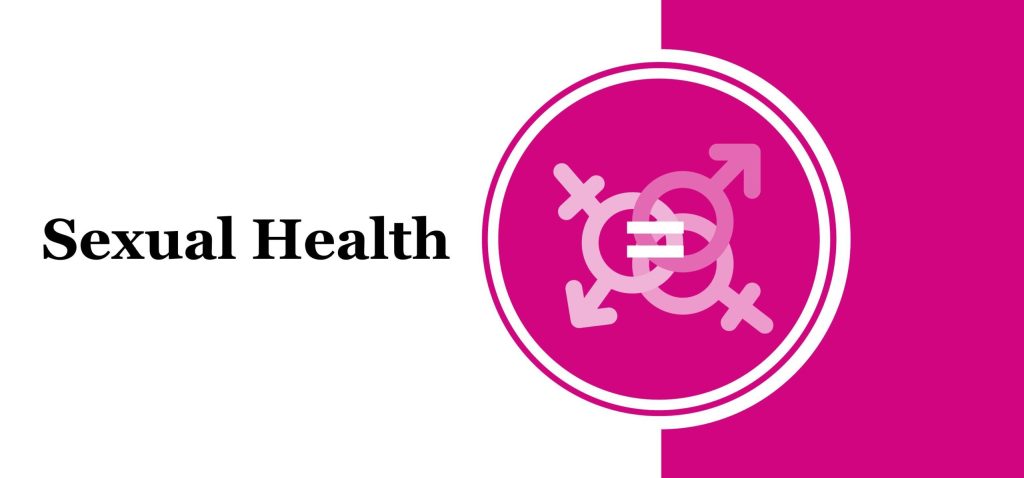Understanding Sexual Health: Essential Insights for a Balanced and Healthy Life
Sexual health is a crucial aspect of overall well-being, encompassing not only physical health but also emotional and relational dimensions. In a world where conversations about sexual health are becoming increasingly open, it’s important to have accurate information and resources to ensure a healthy and fulfilling life. This article aims to provide essential insights into sexual health, debunk common myths, and offer practical advice for maintaining sexual well-being.
1. What is Sexual Health?
Sexual health is defined by the World Health Organization (WHO) as a state of physical, emotional, mental, and social well-being related to sexuality. It involves a positive and respectful approach to sexuality and sexual relationships, free from coercion, discrimination, and violence.
Key Aspects of Sexual Health:
- Physical Health: Includes regular screenings for sexually transmitted infections (STIs), contraception, and managing sexual dysfunctions.
- Emotional Well-being: Involves a positive self-image, healthy relationships, and open communication about sexual needs and desires.
- Relational Health: Focuses on consent, mutual respect, and understanding in sexual relationships.
Tip: Regularly discuss sexual health with your healthcare provider and partner to address any concerns and maintain a healthy sexual life.
2. Debunking Common Sexual Health Myths
Myths and misconceptions about sexual health can lead to confusion and unhealthy practices. Understanding the truth behind these myths is essential for making informed decisions.
Common Myths and Facts:
- Myth: “You can’t get an STI if you use contraception.”
Fact: While contraception can reduce the risk of STIs, it doesn’t eliminate it entirely. Using barrier methods like condoms is crucial for protection against many STIs. - Myth: “Sexual dysfunction is only a problem for older adults.”
Fact: Sexual dysfunction can affect individuals of all ages due to various factors, including stress, medical conditions, and relationship issues. - Myth: “You can tell if someone has an STI just by looking at them.”
Fact: Many STIs have no visible symptoms. Regular testing and open communication with partners are essential for sexual health.
Tip: Rely on credible sources and consult healthcare professionals for accurate information about sexual health.
3. The Importance of Regular Screenings and Check-Ups
Regular screenings and check-ups are vital for maintaining sexual health and preventing potential issues. Early detection and treatment can significantly improve outcomes.
Essential Screenings:
- STI Testing: Regular testing for STIs is important, especially if you have multiple partners or are experiencing symptoms.
- Pap Smears: For women, regular Pap smears are essential for detecting cervical abnormalities and preventing cervical cancer.
- Prostate Exams: For men, regular prostate exams can help detect issues early, such as prostate cancer.
Tip: Schedule regular health check-ups and screenings with your healthcare provider. Discuss any concerns or symptoms openly to receive appropriate care.
4. Managing Sexual Dysfunction
Sexual dysfunction can impact anyone and may arise from physical, emotional, or psychological factors. Addressing these issues requires understanding their causes and seeking appropriate treatment.
Common Types of Sexual Dysfunction:
- Erectile Dysfunction: Difficulty achieving or maintaining an erection, which can result from stress, medical conditions, or medication side effects.
- Low Libido: Reduced interest in sexual activity, which may be influenced by hormonal changes, relationship issues, or lifestyle factors.
- Orgasm Issues: Difficulty achieving orgasm, which can be caused by physical health issues, psychological stress, or medication.
Tip: If you experience sexual dysfunction, consult a healthcare provider for a thorough evaluation and tailored treatment options. Therapy and counseling can also be beneficial for addressing emotional and psychological factors.
5. Maintaining Healthy Relationships and Communication
Healthy sexual relationships are built on trust, respect, and open communication. Maintaining these elements fosters a positive and satisfying sexual experience.
Key Relationship Tips:
- Communication: Discuss your needs, desires, and boundaries openly with your partner. Honest dialogue is crucial for mutual understanding and respect.
- Consent: Ensure that all sexual activities are consensual and respect each other’s boundaries. Consent should be clear, enthusiastic, and ongoing.
- Quality Time: Spend quality time together outside of sexual activities to strengthen your emotional connection and improve intimacy.
Tip: Regularly check in with your partner about your sexual relationship and be willing to address any concerns or adjustments that may enhance your experience together.
6. Educating Yourself and Others
Ongoing education about sexual health is essential for making informed choices and promoting healthy practices. Being well-informed empowers you to make decisions that align with your values and needs.
Education Resources:
- Books and Articles: Read reputable books and articles on sexual health to deepen your understanding.
- Workshops and Seminars: Attend workshops or seminars on sexual health topics to gain insights from experts.
- Online Resources: Utilize credible online resources and educational websites to stay updated on sexual health information.
Tip: Share accurate sexual health information with friends and family to help promote a culture of openness and understanding.
7. Addressing Sexual Health Across the Lifespan
Sexual health needs and concerns can vary throughout different stages of life. Being aware of these changes can help you adapt and seek appropriate support.
Life Stages and Considerations:
- Adolescence: Focus on education about safe sex, consent, and emotional readiness.
- Adulthood: Address sexual health needs related to reproductive health, contraception, and relationship dynamics.
- Aging: Explore changes related to sexual function, hormone levels, and maintaining intimacy in long-term relationships.
Tip: Embrace the changes and seek guidance from healthcare professionals to address any sexual health concerns as you age.
Conclusion
Sexual health is an integral part of overall well-being, encompassing physical, emotional, and relational aspects. By debunking myths, prioritizing regular screenings, managing sexual dysfunction, and fostering healthy relationships, you can maintain a fulfilling and balanced sexual life.
Educating yourself and others, staying informed, and seeking professional advice when needed will empower you to make informed decisions and navigate sexual health with confidence. Embrace these insights to enhance your sexual well-being and lead a healthier, more satisfying life.
Understanding and maintaining sexual health is essential for a well-rounded, healthy lifestyle. By integrating these tips into your routine and staying open to learning, you’ll be better equipped to handle the various aspects of sexual health and lead a fulfilling life.



